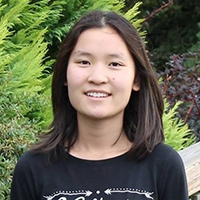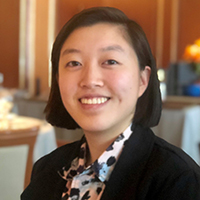Seattle’s Chinatown-International District is the home to exceptional food. If you’d like to learn more about the offerings, it’s not particularly hard to find online reviews. But what about the other side of the story — what if you want to hear directly from the restaurant owners?
A group of Informatics students at the University of Washington Information School have created a website that lets restaurant owners tell their stories in their own words. The owners can share the history of their businesses and offer the background on some of their favorite menu items.

The group members — Damita Gomez, Steven Luong, Phung Phu and Chloe Tsien — created the website as their Capstone, a culminating project that offers students a chance to solve a real-world problem.
The team didn’t set out to focus solely on food. They originally considered a broader focus on travel, and for a wider area. But as they did more research, they began to refine their project. They realized that food could be an important way of communicating. And by putting their focus directly on business owners, they would be able interview them and create a stronger connection to the community, all while sharing stories that people would appreciate.
“Food is something to enjoy,” Gomez said. “So we can work with that to really tell the stories of people in the Chinatown/International District.”

They also thought deeply about the importance of giving business owners a chance to speak in their own voices — especially at a time when there has been an alarming increase in instances of hate and violence directed toward the Asian community. And the community has been facing a variety of challenges for years.
“Over the years, we’ve seen Chinatown being gentrified,” Phu said. “We wanted to write these stories so people could learn more. We wanted to give a platform to these business owners to tell their stories”
The site highlights restaurants with their own individual article. The restaurant owners share the fascinating backstories of their restaurants and their menu offerings. It gives a richer, deeper context to enjoying a meal.

Even for those who were already familiar with Chinatown, working on this project offered a new way to look at the community.
“I loved learning more stories of the various businesses,” said Luong, a double-major in Informatics and Computer Science. “I grew up in Seattle, and I’d visit Chinatown throughout my life and order food. And I’d never hear the owners’ perspectives and stories. I found it really interesting and I enjoyed learning about them.”
The team has worked together, using the skills they’ve gained from their iSchool education, to build the front and the back ends of the site. They initially envisioned a fully hard-coded site, but ended up using WordPress to make the site more scalable and manageable. They’re working on a way to let the site and project live on after they graduate by making it open source.

Nam-ho Park, an iSchool lecturer, has been the team’s advisor. He appreciates how the students are using what they’ve learned to help their community in a way that could have a lasting impact.
“This is a great example of students taking the initiative to seek out an area in their community that they thought would really benefit from the skills they have acquired,” he said. “I think what makes this team especially unique is that they bring a lot of their own personal experiences, and their own wanting to explore and a sense of curiosity. This project has a personal significance, and that’s what I think is driving the journey.”
He also admires how the project is giving voice to the business owners and offering a way to combat hate by building genuine connections and understanding.
“The only way to combat and overcome racism is to have a deep appreciation and find a way to connect that’s not superficial,” Park said.
Tsien said their goal of helping people was a key part of the project.
“That motivated us to build a really great project that will really represent the people there,” she said. “The businesses are Asian-owned, immigrant-owned. We want their voice to be heard and for them to be seen.”
View the Capstone team's poster and video on their project page. Learn about many of this year's project at the Capstone event on May 27.
